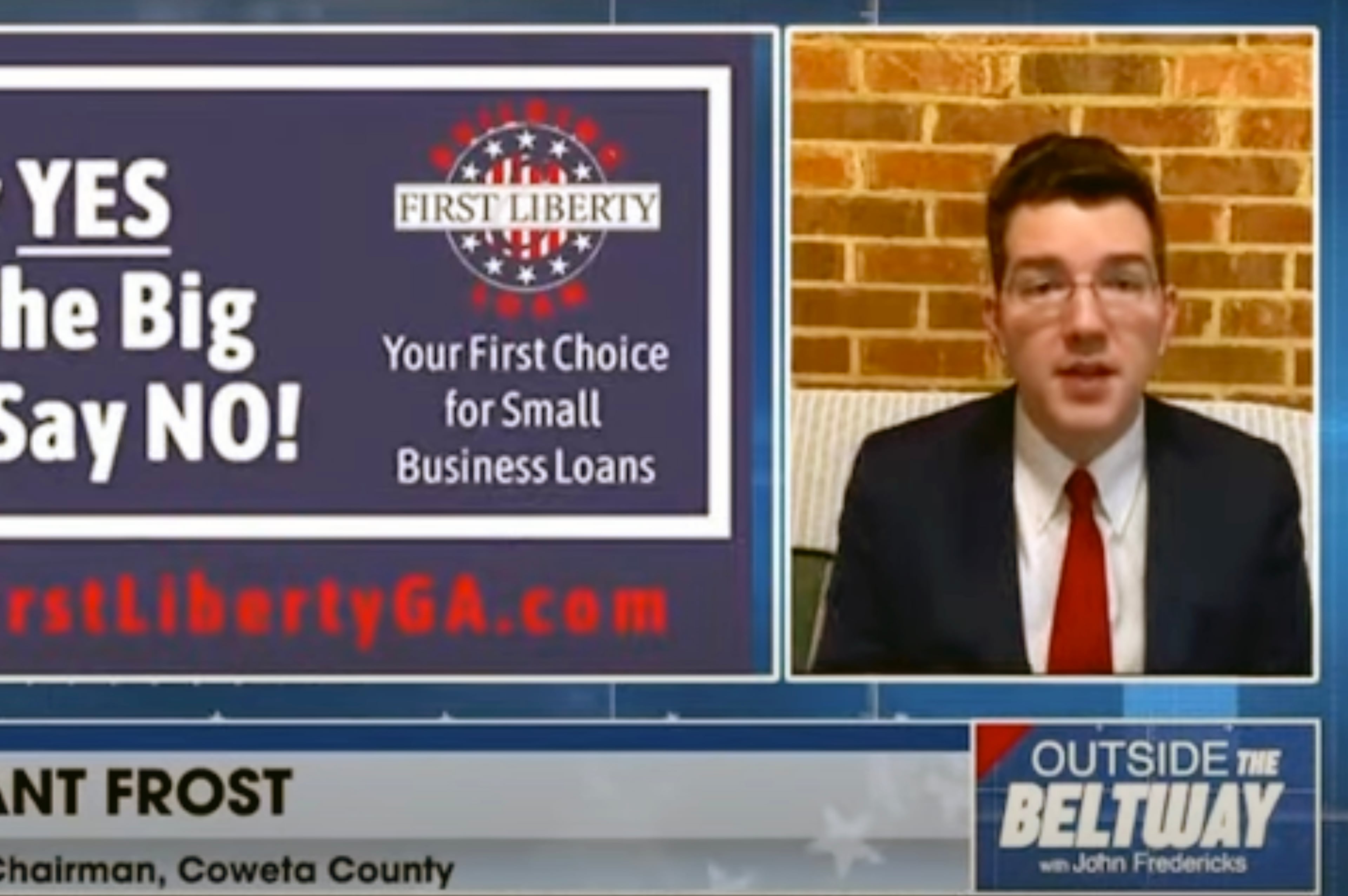Dewberry’s trademark dispute could pierce the ‘corporate veil’

With a view from my Midtown office, I have watched the on-again, off-again construction of an office tower by famous Atlanta developer John Dewberry. Or infamous, depending on to whom you talk, given Dewberry’s penchant for waiting years to revitalize his long-owned properties — and then, even after completion, drawing criticism.
It seems controversy follows Dewberry everywhere, with the slow, painful progress of “The Midtowne” skyrise outside my building as the most recent target.

Yet it is a different type of Dewberry controversy that has gotten the attention of the U.S. Supreme Court. This summer, the high court agreed to hear an appeal of a ruling that, if it stands, will cost Dewberry nearly $43 million. And this dispute isn’t about another high-rise, but an intellectual property fight that has dragged on for years over the use of the Dewberry name.
The outcome could have an impact well beyond Dewberry the developer. The case’s most novel issue — about whether the “corporate veil” American businesses have come to rely upon can and should be pierced — could force many corporations in Georgia and across the nation to rethink their structure (at least as it relates to trademark use). According to Dewberry’s lawyers, it also could make it impossible for businesses to assess their risks and liabilities accurately, purchase adequate insurance and raise capital.
All of this from what appeared to be a short-lived dispute that began nearly two decades ago between two companies with a shared name: Dewberry. In 2006, John Dewberry’s firm, then known as Dewberry Capital but today as the Dewberry Group, sent a cease and desist letter to Dewberry Engineers, which got its start in the 1950s as a civil engineering and surveying firm in Virginia but expanded over time to include real estate development services that now span the United States, including Georgia.
The initial warning letter claimed “a likelihood of confusion or mistake exists between the parties’ respective [trade]marks” and argued, although Dewberry Engineers held a federal trademark for “Dewberry,” Dewberry Group had senior common law rights to the use of the name in connection with real estate development and related services.
Things escalated from there. Dewberry Engineers filed a lawsuit against Dewberry Group for trademark infringement, and Dewberry Group filed a counterclaim for common law infringement. In 2007, however, the parties reached a confidential settlement agreement in which Dewberry Engineers was permitted to use its registered trademarks freely, while Dewberry Group was prohibited from challenging them and limited in its ability to register or use the Dewberry name — including using a trademark and/or logo that depicts a “dewberry” or “berry.”
For a time, as court rulings note, “the parties retreated to the status quo” but “the armistice dissolved in 2017 … when Dewberry Group decided to revamp its brand” and change the suffix “Capital” to “Group.” John Dewberry also adopted several sub-brands using the Dewberry name and created a new logo that featured the letter D within a circle.
Dewberry Engineers challenged these moves, first before the United States Patent & Trademark Office, which rejected Dewberry Group’s trademark applications, then in 2020 with a federal lawsuit. A district court judge in Virginia sided with Dewberry Engineers and awarded nearly $43 million in profit disgorgement from Dewberry Group. Last August, a federal appeals court affirmed that ruling.
Although those lower court rulings raise fascinating intellectual property issues and findings, the Supreme Court will focus on only one question when it hears the case next term: whether, under federal trademark law, the $43 million award requires developer Dewberry to disgorge the profits of corporate affiliates.
At stake in all of this is the very bedrock principle of corporate separateness, which Dewberry’s attorneys argue goes beyond trademark law and into areas governed by federal securities, ERISA and copyright laws, among others. This notion of separateness is an artifact of the longtime principle of corporate immunity, used by companies to limit an owner’s or individual’s liability.
“A more flagrant disregard of corporate separateness is hard to imagine,” Dewberry Group’s attorneys contend in court filings. They argue the plaintiffs could have simply sued the separate Dewberry Group affiliates or taken traditional, proper veil-piercing steps such as showing the existence of fraud, or that there is no real separation between the company and its affiliates, or there was a failure to adhere to corporate formalities.
Short of that, they argue, previous court rulings have found corporate affiliates must be treated as distinct entities and the “corporate veil” cannot be penetrated. In essence, Dewberry is saying you cannot look at my affiliates without first piercing the corporate veil, and you cannot punish my affiliates under federal trademark law.
The Supreme Court’s final say on the matter could leave the Atlanta developer on the hook for tens of millions of dollars — and corporate entities across America in a precarious and vulnerable position — or throw out the award and let stand settled federal trademark law.
Whether the building outside my office is ever completed is another issue.
Tennell Lockett is a co-founder and managing partner of Atlanta-based law firm Townsend & Lockett, where he also leads the firm’s Intellectual Property practice.

